Our Ethical Origin and Quality Fabrics
All of the fabrics and yarn used in the manufacture of our clothing range are carefully sourced for their ethical origin and quality.
Organic Cotton
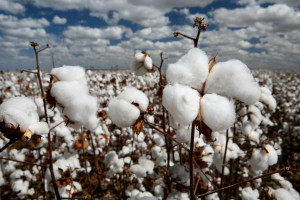 There are huge environmental concerns with regards to the growing of conventional cotton crops.
There are huge environmental concerns with regards to the growing of conventional cotton crops.
It is the most pesticide intensive crop in the world, and covers approximately 2.5% of the world’s cultivated land and uses 16% of the world’s insecticides, which is more than any other single crop.
This consequently has a severe damaging effect on people’s health and surroundings.
Toxic chemicals used in the processing of conventional cotton are damaging our ecosystems by polluting air and surface waters.
The harmful chemicals used in the process of growing and manufacturing cotton still remain in the finishing stage thus in many instances irritating the skin of consumers.
Organic cotton is grown using methods and materials that have a low impact on the environment. Organic production systems replenish and maintain soil fertility, reduce the use of toxic and persistent pesticides and fertilizers, and build biologically diverse agriculture.
Third-party certification organizations verify that organic producers use only methods and materials allowed in organic production. Organic cotton is grown without the use of toxic and persistent pesticides and synthetic fertilizers. In addition, federal regulations prohibit the use of genetically engineered seed for organic farming.
Frida Josef use yarn manufactured from organic Fairtrade cotton within an ecological and socially conscious process through the bioRe textile chain.
The yarn is dyed with non-toxic dyes in recyclable water.
It is beautifully soft and gentle against young skins.
The Organic fabrics in our clothing offer the following advantages:
- no use of agricultural chemicals
- no chemical residues on the final product
- no genetically modified seeds
- cotton varieties in accordance with location
- strict control of raw materials and cotton
- spinning mill, weaving mill and equipment – low formaldehyde limit of 20ppm.
Our organic cotton adheres to the Global Organic Textile Standard (GOTS) guidelines for all process stages.
This represents:
- the clear definition of production processes in raw material production,:spinning mill,weaving mill,equipment certified with Oko-Tex100,1000 and GOTS
- controlled environmental management concerning waste water treatment,packaging,storage and transport
- adherence to social criteria with labour conditions,fair compensation and no child labour.
Cashmere
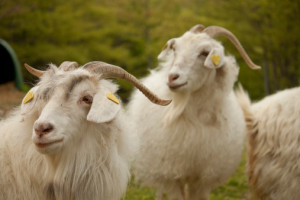 Cashmere is the downy undercoat grown by goats in extreme cold temperatures. The majority of the world’s cashmere comes from Mongolia, China, where temperatures can fall to below -30°C.
Cashmere is the downy undercoat grown by goats in extreme cold temperatures. The majority of the world’s cashmere comes from Mongolia, China, where temperatures can fall to below -30°C.
Cashmere, the fibre of kings, has long been one of the most exotic and rarest fibers to be found. It was prized in ancient Rome as a luxury item and has periodically been a fashion item ever since. Beau Brummel made white cashmere waist coats all the rage for men in the 19th century. Napoleon popularized cashmere shawls after he gave 17 of them to his second wife.
The best cashmere is comprised of fine, long fibres. The fineness of the fibres is what makes cashmere so warm and soft. The finest quality cashmere has lustre, heft and loft. Poor quality “feels dead, dry and boardy.” We aim to source and provide the finest quality Cashmere in our knitwear, and for goats that are well cared for.
Linen
 Linen is one of the earliest products known to civilization.It was the preferred textile of the Ancient Egyptians.
Linen is one of the earliest products known to civilization.It was the preferred textile of the Ancient Egyptians.
Linen fabric is produced from fibre extracted from the stems of the flax plant and was an important textile before wool and cotton. Even today it is considered an ever popular fabric because of the following eco benefits;
- The whole flax plant can be used, leaving no waste.
- Flax grows naturally and requires less water and fewer pesticides than cotton, making it the more eco-friendly fabric.
- Because it’s a natural fiber, flax linen is recyclable and biodegradable.
- Flax is gentle on the land and is easy to incorporate into modern crop rotation cycles, preventing soil depletion.
- Very little energy is required to process flax.
- Linen yarn is inherently strong, which reduces the need for starching during spinning and weaving.
- Linen fabrics can be recycled into paper and insulation materials
- Flax linen is many times stronger than cotton, which means clothing made from linen is made to last, rather than wind up in a landfill.
- The industrial processes of spinning and weaving have very little to no impact on the environment.
- Linen is considered to be hygienic helping to relieve allergies and is used to filter fallout, radiation and gamma rays.
- Linen is COOLER in the SUMMER helping to relieve the skin of excess heat, and WARMS by insulating the body in the Winter thus making it an excellent adaptogen.
Alpaca
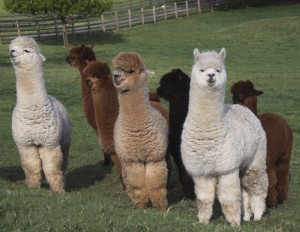 ALPACAS look like the very cute little hippies of the camel world, with their wild hair, shaggy coats, wonderfully expressive faces and chilled-out life grazing in the fields. They resemble a small Llama and are renowned for their intelligence and curiosity
ALPACAS look like the very cute little hippies of the camel world, with their wild hair, shaggy coats, wonderfully expressive faces and chilled-out life grazing in the fields. They resemble a small Llama and are renowned for their intelligence and curiosity
There are two different types of alpacas – The Huacaya are teddy bear like and have fiber that grows perpendicular to their bodies. The Suri is the other type and have long silky pencil locks that grows horizontal to their body.
Our Yarn was spun from the first fleece of a beautiful herd of Alpacas homed in the beautiful hills of the Peak District in Derbyshire. Year after year the fleece of all the Alpacas past and present has won awards for its superior quality.
They are family pets who have the best of love and care possible. Infact we can even name them.
Yorkshire Cloth
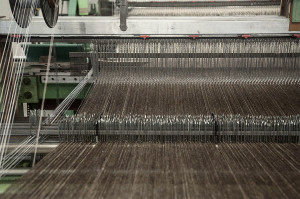 Yorkshire Cloth is synonymous with high quality and is beloved by Fashion Houses Worldwide. Over many generations it has been worn by everyone,including Presidents and Princes.
Yorkshire Cloth is synonymous with high quality and is beloved by Fashion Houses Worldwide. Over many generations it has been worn by everyone,including Presidents and Princes.
Yorkshire textiles enjoy a reputation for high quality by being based on tradition and history.
Even today some of Yorkshire’s oldest Textile Mills that remain combine traditional techniques with modern technology thus making Yorkshire cloth as popular as ever.
All of the 100% Wool Cloth and Tweed we use in part of our clothing range is manufactured in Yorkshire Mills, thus enabling us to offer our customers superb quality.
Organic Peace Silk
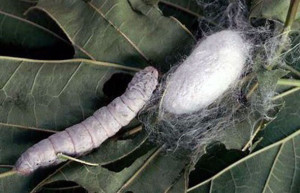 Conventional silk is made by boiling the intact cocoons and thereby killing the silk worms after which the single silk strand is unwound onto reels.
Conventional silk is made by boiling the intact cocoons and thereby killing the silk worms after which the single silk strand is unwound onto reels.
The cocoons that produce Peace Silk are organically raised in the United States in the Ahimsa Peace Silk tradition.
(Ahimsa means non-violent, and was popularized as a term by Ghandi, as an ethic for the political movement that eventually led to India’s independence).
The term ‘Ahimsa Silk’ is equivalent to the term ‘Peace Silk’.
The Ahimsa tradition allows the silkworm moths to emerge from their cocoon and finish their lives naturally, to live out their full life cycle.
The white and yellow cocoons are of an excellent size and density, and no chemicals or Genetically Modified Organisms (GMO) are used in their creation.
The silk is degummed and spun like other fibre, instead of being reeled. The resulting yarn is soft, fluffy, and light like a cloud.
The beautiful and delicate nature of the Organic silk that goes in to making some of our clothing deserves to be treated with the utmost respect that Mother Nature intended for the laborious silk worm that created it.
Charmeuse Silk: Known as the silk of emperors, charmeuse silk is shiny and very smooth. It has an elegant lustre and beautiful drape that is not to be confused with polyester satin.
Fair Trade
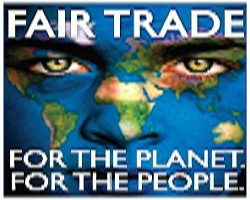 The term ‘Fairtrade’ (one word) is used to certify goods that meet an internationally agreed standard. Buying products that carry the Fairtrade mark is your independent guarantee that disadvantaged producers are getting a better deal.
The term ‘Fairtrade’ (one word) is used to certify goods that meet an internationally agreed standard. Buying products that carry the Fairtrade mark is your independent guarantee that disadvantaged producers are getting a better deal.
It means you can be confident that a fair price has been paid for your product and that producers have enough money to reinvest back into their communities.
Our garments manufactured from fairtrade fabric are usually Organic as well.
Wool for Knitwear
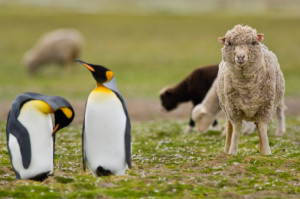 Sheep are gentle timid animals,who like all animals feel pain,fear and loneliness. But because of the huge market for their fleece and skins they are often treated as nothing more than wool – producing machines.
Sheep are gentle timid animals,who like all animals feel pain,fear and loneliness. But because of the huge market for their fleece and skins they are often treated as nothing more than wool – producing machines.
MERINO
The cruel and barbaric methods used in the treatment of Merino sheep in certain countries has been heavily publicised in recent years. Some shearers have been caught treating the sheep in the most vile and cruel way causing unnecessary suffering and even death.
Another very controversial practise is Mulesing, which involves cutting chunks of skin and flesh from the Merino Sheep to prevent the parasite fly site from affecting the quality of wool.
There are now Worldwide Animal Welfare Organisations demanding that the welfare of these gentle Animals is far more strictly regulated
We at Frida Josef pride ourselves in using sustainable and Organic wool sources.
The Merino Wool in our knitwear is produced from Merino sheep Organically raised in the Falkland Islands. They are ethically raised, allowing them to roam freely on green pastures free from pesticides. Their fleece is sent to the U.K for Spinning, using traditional worsted machinery to process and spin fine quality British Yarns.
British Wool
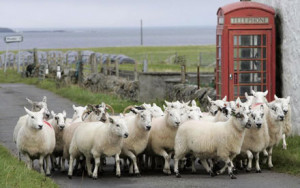 British Wool is Eco-friendly and sustainable.
British Wool is Eco-friendly and sustainable.
It is a totally natural product which is entirely renewable and sustainable and is 100% biodegradable – a very important feature in a world that is increasingly concerned about the environment.
Frida Josef is proud to be a member of The British Wool Marketing Board and Campaign for Wool – a global endeavour initiated by it’s patron, His Royal Highness The Prince of Wales.
